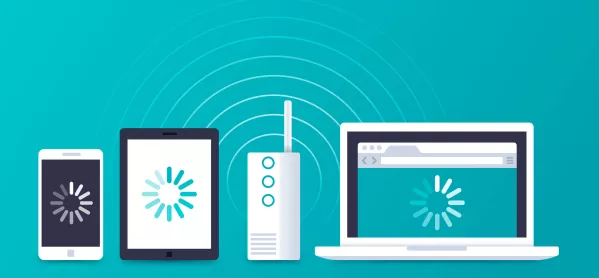Buying up the latest mobile technology for schools is a wasted effort when pupils and teachers are struggling just to get a workable internet connection, a major technology and education conference has heard.
The biggest barrier to schools embracing the latest technology is poor internet connectivity, not a lack of up-to-date tablet computers, delegates were advised at the annual Holyrood Learning Through Technology event.
Charlie Love, a quality improvement officer at Aberdeen City Council and expert in digital learning, said: “What’s the biggest thing that’s holding us back? I don’t think it’s devices - it’s connectivity, the infrastructure.”
Edtech: Has tech increased teachers’ burden?
Teachers: Investment ‘needed for teachers to benefit from AI’
Opinion: ‘At last, a vision for edtech’
Insufficient bandwidth and slow connections were “the biggest challenge for us”, with connectivity to some city centres as poor as it is in parts of the Highlands, he said.
Edtech: Connectivity ‘is absolutely fundamental’
Mr Love added: “If we can deal with our connectivity, if we can build our information highways to our schools, talk to our telecom providers, come up with ways…where mobile phone companies have to connect our schools as part of their 5G agreements - let’s try and do something a bit creative.”
Resolving connectivity problems, he underlined, is “absolutely fundamental” and must be done before schools turn their attention to what kind of devices might work for them.
Malcolm Wilson, ICT curriculum development officer at Falkirk Council, said his authority had spent a “huge” amount of time and money getting connectivity right.
This might have made it seem “slower off the mark” and “behind the times” with devices, but it was the right approach as they “just wouldn’t work unless we had the connectivity”.
There are so many products and devices schools can choose from that they can become “swamped”, said Mr Wilson, who was also speaking at yesterday’s conference.
Mr Love, meanwhile, said that the daunting range online systems available can also have a downside if schools and local authorities use a number of them at the same time: “all this choice” can be “confusing” to the pupils who have to navigate them - with homework, for example, in different places for different subjects - and can also result in “a very disjointed approach to teaching”.
Mr Love recognised that local authorities can come under heavy pressure from large multinational corporations to use their products, but said that educators must not lose sight of the priority that “the experience of the young person is consistent”.
The problems caused by poor connectivity have been cited as a major issue for schools throughout the UK. Last year, the Church of England raised poor broadband as an issue when it called for a rural strategy to improve the viability of rural schools.





